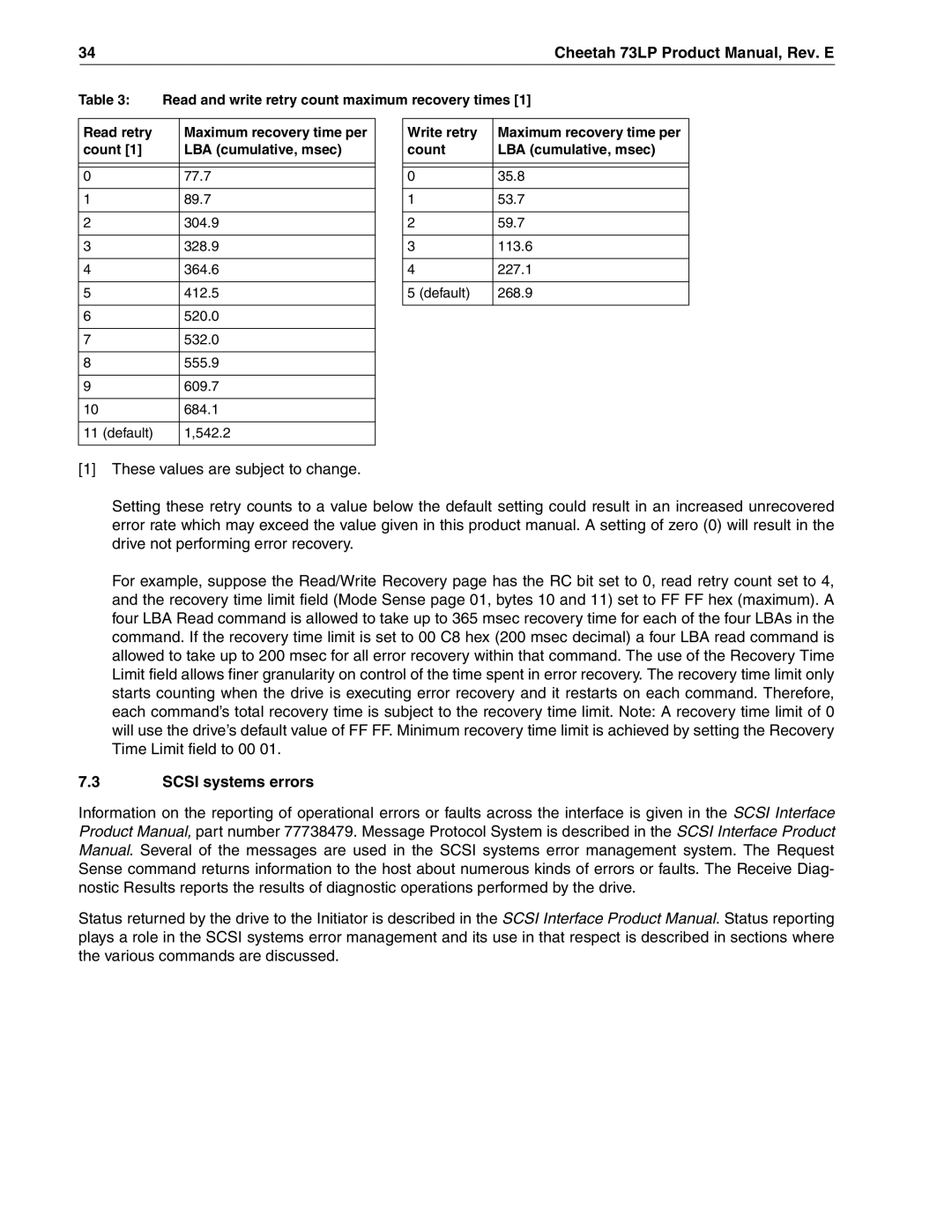34 | Cheetah 73LP Product Manual, Rev. E |
Table 3: Read and write retry count maximum recovery times [1]
Read retry | Maximum recovery time per |
count [1] | LBA (cumulative, msec) |
|
|
|
|
0 | 77.7 |
|
|
1 | 89.7 |
|
|
2 | 304.9 |
|
|
3 | 328.9 |
|
|
4 | 364.6 |
|
|
5 | 412.5 |
|
|
6 | 520.0 |
|
|
7 | 532.0 |
|
|
8 | 555.9 |
|
|
9 | 609.7 |
|
|
10 | 684.1 |
|
|
11 (default) | 1,542.2 |
|
|
Write retry | Maximum recovery time per |
count | LBA (cumulative, msec) |
|
|
|
|
0 | 35.8 |
|
|
1 | 53.7 |
|
|
2 | 59.7 |
|
|
3 | 113.6 |
|
|
4 | 227.1 |
|
|
5 (default) | 268.9 |
|
|
[1]These values are subject to change.
Setting these retry counts to a value below the default setting could result in an increased unrecovered error rate which may exceed the value given in this product manual. A setting of zero (0) will result in the drive not performing error recovery.
For example, suppose the Read/Write Recovery page has the RC bit set to 0, read retry count set to 4, and the recovery time limit field (Mode Sense page 01, bytes 10 and 11) set to FF FF hex (maximum). A four LBA Read command is allowed to take up to 365 msec recovery time for each of the four LBAs in the command. If the recovery time limit is set to 00 C8 hex (200 msec decimal) a four LBA read command is allowed to take up to 200 msec for all error recovery within that command. The use of the Recovery Time Limit field allows finer granularity on control of the time spent in error recovery. The recovery time limit only starts counting when the drive is executing error recovery and it restarts on each command. Therefore, each command’s total recovery time is subject to the recovery time limit. Note: A recovery time limit of 0 will use the drive’s default value of FF FF. Minimum recovery time limit is achieved by setting the Recovery Time Limit field to 00 01.
7.3SCSI systems errors
Information on the reporting of operational errors or faults across the interface is given in the SCSI Interface Product Manual, part number 77738479. Message Protocol System is described in the SCSI Interface Product Manual. Several of the messages are used in the SCSI systems error management system. The Request Sense command returns information to the host about numerous kinds of errors or faults. The Receive Diag- nostic Results reports the results of diagnostic operations performed by the drive.
Status returned by the drive to the Initiator is described in the SCSI Interface Product Manual. Status reporting plays a role in the SCSI systems error management and its use in that respect is described in sections where the various commands are discussed.
